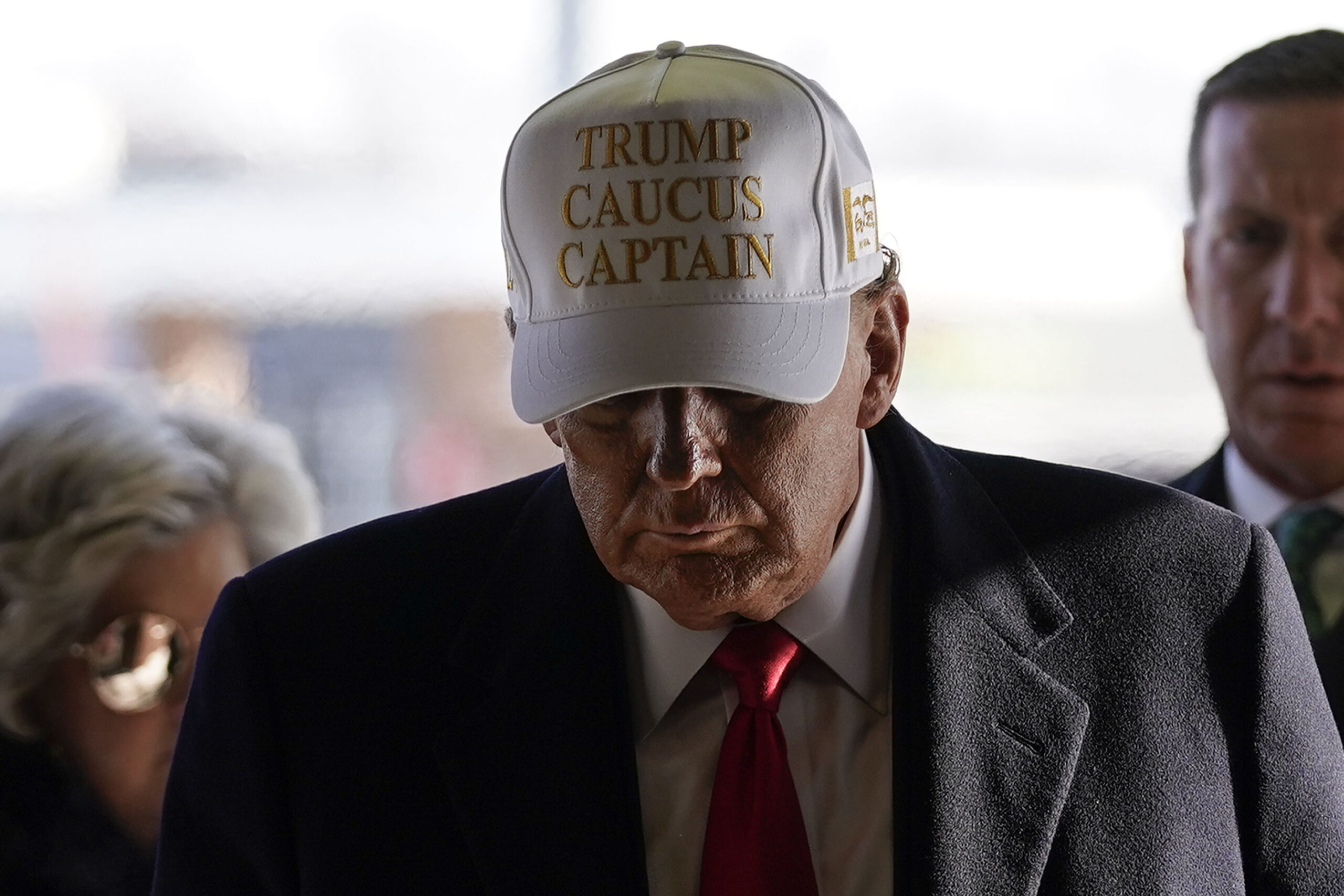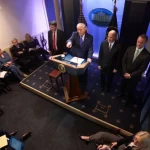

Monday’s Iowa caucuses will give us our first tangible results by which to judge the race for the 2024 Republican presidential nomination.
No more polls, debate spin rooms, or pundit speculation — well, all those things will continue, but they soon will be assessed against real voting results.
Essentially all of those aforementioned polls project that former President Donald Trump will win walking away. He’s at 52% in the RealClearPolitics polling average, up 33.8 points. Three of the last four statewide surveys show Trump receiving a majority of the vote, the biggest being 55%.
But candidates like to say the only poll that matters is the one on Election Day. That sets up three possible scenarios for Iowa, the nation’s first contest in the Republican race to challenge President Joe Biden.
An upset — by somebody
The pollsters haven’t had their best overall showing in the past few election cycles, as the industry faces new challenges. Trump outperformed his poll numbers in both 2016 and 2020. The polls were arguably a little sunnier for Republicans in 2022 than the final midterm election results.
But I’d need to see a series of reputable polls be off by 30 or more points before I’d believe it. Still, if something like that was going to happen, a caucus taking place in frigid and snowy weather during a period of polling uncertainty might be the conditions under which that could happen.
That is the hope for Gov. Ron DeSantis (R-FL), who has largely staked his once formidable campaign on Iowa. He has still been predicting a win in recent weeks. And he is widely viewed as having the best ground operation in the state, which especially matters in a caucus system and should give him at least some potential to exceed his public polling numbers.
DeSantis has the backing of Gov. Kim Reynolds (R-IA) and influential local evangelical activist Bob Vander Plaats. His campaign announced endorsements from 150 more “Iowa faith leaders” on Friday night.
A DeSantis win, even one as narrow as Rick Santorum’s in the 2012 caucuses, could reignite his whole campaign. It would also seriously cast doubt on the polls’ accuracy and raise questions about what we really know about the whole race, though weather conditions would surely be listed as a contributing factor.
Former United Nations Ambassador Nikki Haley has leapfrogged DeSantis for second place in the RealClearPolitics average, though that is largely the result of two surveys: a Suffolk University poll that shows her with 22% to the Florida governor’s 13% and one by NBC News and the Des Moines Register that has her at 20% to DeSantis’s 16%. Most other recent polling finds the two of them tied.
Moreover, there are details in the Des Moines Register numbers that have the pollster behind them sound skeptical of Haley’s second-place showing. “Her enthusiasm numbers, again, I just think are on the edge of jaw-dropping,” Ann Selzer told the newspaper. “That 61 percent are just mildly enthusiastic or not that enthusiastic — it just seems at odds with a candidate moving up.”
Still, Haley does seem to have momentum on her side, although her performance in her only one-on-debate against DeSantis received decidedly mixed reviews. Her ground game is thought to be inferior to DeSantis’s and possibly Trump’s, but that’s where the backing of the Koch network’s grassroots operation could come in handy.
If Haley pulls off the unlikely, it would set her up for a two-way race against Trump in New Hampshire, where she has been eating away at the former president’s lead.
A smaller-than-expected Trump win
Here’s where managing expectations becomes important. If after leading by more than 30 points, Trump finishes first but by a smaller, possibly much smaller, margin, does that allow another candidate to spin a second- or even third-place showing as a coup?
If, for example, DeSantis lost to Trump by 20 points, it might be difficult for him to argue that he had achieved a moral victory (though his supporters would surely try). But if DeSantis came within 10 points of Trump, such a framing of the results might seem plausible.
Haley has more flexibility to maintain that a second-place finish is a net plus for her campaign regardless of how many votes separate her from the winner. But she surely wouldn’t mind ending up like Pat Buchanan in 1996 — he came within 3 points of front-runner Bob Dole in Iowa and then narrowly beat him in New Hampshire — but with a win in her home state of South Carolina.
Both rivals are likely to make hay of Trump showing significantly below 50%, no matter their own position. The Des Moines Register poll has Trump up big, but also with just 48% of the vote.
The Trump campaign has been throwing out 12-13 points as a good winning margin. Dole defeated Pat Robertson by 13 points in the caucuses in 1988. George W. Bush beat Steve Forbes by a shade under 10.5 in 2000.
Bush was up 23 points in the final Des Moines Register poll. His 41% on caucus day was just barely below his 43% in the poll, but his margin of victory was less than half was it predicted. Trump leads in this poll for the final time by 28 points.
“A win is a win,” Trump campaign manager Chris LaCivita has said.
Trump trounces the field
There is also the possibility Trump won’t need any verbal gymnastics, in the tradition of claiming the biggest inaugural crowd size ever and counting online viewers, to justify his win. He hasn’t been below 51% in a significant Iowa poll this month. Another candidate has broken 20% only once during that time period.
Nationally, Trump’s numbers are even better, in excess of 60%, while his opponents usually poll less than 15%. The possibility of a Trump landslide cannot be discounted, especially if his supporters are motivated to turn out. Then the only question will be whether DeSantis or Haley comes in second.
CLICK HERE TO READ MORE FROM THE WASHINGTON EXAMINER
“Forget polls that show we’re 35 points up. Pretend we’re one point down,” Trump told supporters in Mason City, Iowa. “The biggest risk is you say, ‘We’re winning by so much, darling, let’s just stay home and watch TV.’”
A convincing Trump win wouldn’t necessarily end the race. But it would put additional pressure on the other campaigns in New Hampshire — and possibly signal the end is near.






